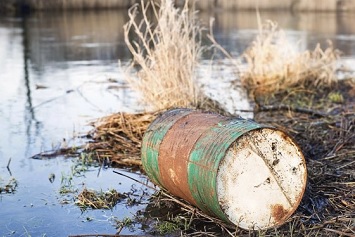On November 25, 2020, the EPA finalized rulemaking that determined that the electric power generation; transmission and distribution; petroleum and coal products manufacturing; and chemical manufacturing industries will not be required to have additional insurance to cover accidents and major spills.
 “EPA has found that existing environmental regulations and modern industry practices are sufficient to mitigate any risks inherent in these industries,” said EPA Administrator Andrew Wheeler.
“EPA has found that existing environmental regulations and modern industry practices are sufficient to mitigate any risks inherent in these industries,” said EPA Administrator Andrew Wheeler.
Section 108(b) of the Comprehensive Environmental Response, Compensation, and Liability Act (CERCLA or Superfund) gives the EPA the authority to require that classes of facilities establish and maintain evidence of financial responsibility to cover the costs associated with releases or threatened releases of hazardous substances from their facilities.
The EPA previously reached a similar decision for the hard rock mining industry on December 1, 2017.
In making its determination, the EPA “evaluated the financial risk to the federal Superfund program associated with the production, transportation, treatment, storage, or disposal of hazardous substances in these industries,” including “the history of cleanups under Superfund, modern industry practices, applicable federal and state regulations, the industries’ financial health and economic trends, and the risk of taxpayer-funded cleanups of facilities in these industries,” as well as “public comments.”
“EPA’s final rulemakings do not remove any existing requirements; rather they do not impose additional, new requirements,” according to the Agency’s press release.
Critics say this ruling will negatively impact low-income communities and communities of color, which typically live near polluting industries.
“This is all so basic. It would just require that those companies have proof that if there is a release or spill of hazardous substances that there would be funds to clean it up so it’s not left on the taxpayers,” said Lisa Evans, an attorney with Earthjustice, as quoted in The Hill. She added that the Obama-era rules targeted “polluters that had [the] most likelihood of creating releases.”
Environmental groups pushed for these types of companies to purchase accident insurance as an additional protective layer because insurance companies typically require additional measures such as containment areas to confine spills.
“They will come and look at a facility and require that industry has certain safeguards in place so they won’t have a spill,” Evans said. “Industry will have to operate more safely if it has to get and maintain financial assurance—that’s just the way the world works.”
“This is corporate welfare that leaves American taxpayers at risk for having to foot the bill when polluters create a toxic mess,” Evans added, calling the move a “parting gift from Donald Trump to industry lobbyists on his way out the door.”
Evans said Earthjustice and other environmental groups will work to reverse this rule in 2021.
